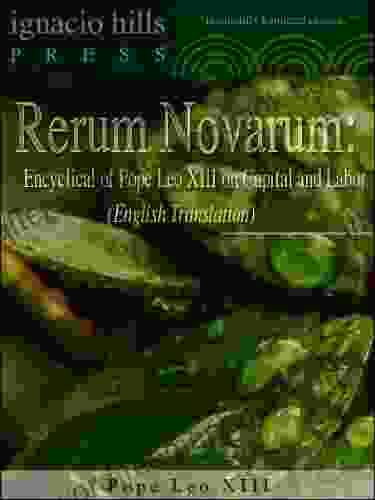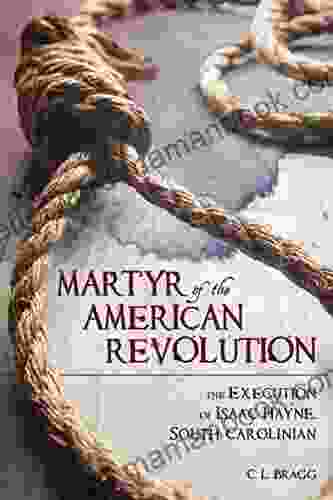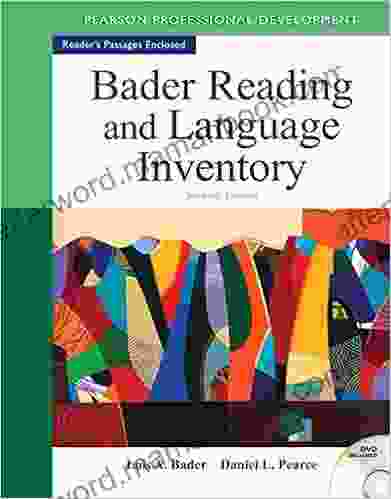Encyclical of Pope Leo XIII on Capital and Labor: English Translation

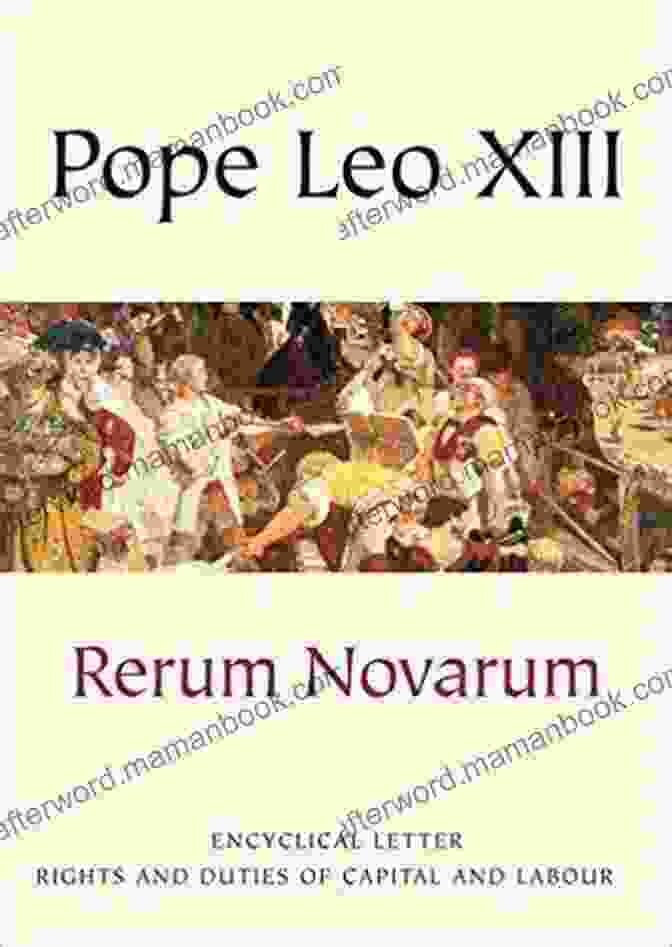
Pope Leo XIII's encyclical on capital and labor, Rerum Novarum, is a landmark document in the history of Catholic social thought. Written in 1891, the encyclical addresses the social and economic problems of the Industrial Revolution and offers a Christian perspective on the relationship between capital and labor.
4.7 out of 5
| Language | : | English |
| File size | : | 133 KB |
| Text-to-Speech | : | Enabled |
| Screen Reader | : | Supported |
| Enhanced typesetting | : | Enabled |
| Word Wise | : | Enabled |
| Print length | : | 36 pages |
| Lending | : | Enabled |
Rerum Novarum was written in response to the growing social unrest and economic inequality that was taking place in Europe at the time. The Industrial Revolution had led to a sharp increase in wealth and productivity, but it had also created a new class of industrial workers who were often poor and exploited. Rerum Novarum called for a more just and equitable distribution of wealth and for the protection of the rights of workers.
Rerum Novarum has been a major influence on Catholic social thought ever since it was written. It has been cited by subsequent popes and bishops as a source of inspiration and guidance. Rerum Novarum has also been influential in the development of Catholic social action movements around the world.
The English translation of Rerum Novarum that is presented here is taken from the official Vatican website. It is a faithful and accurate translation of the original Latin text.
Rerum Novarum
Pope Leo XIII
May 15, 1891
To the Patriarchs, Primates, Archbishops, and Bishops of the Catholic World in Grace and Communion with the Apostolic See:
Venerable Brethren, Health and Apostolic Benediction:
The condition of the working class is the subject of grave solicitude to us. The momentous changes that have taken place in industrial society during the last half century, and the consequent diffusion of socialistic teachings, have caused the question to assume a new and pressing character.
The spirit of revolutionary change, which for a century past has so violently upturned the ancient institutions of the world, has penetrated into the very vitals of society. The conflict between the two classes that make up modern society, the wealthy and the working class, has become so intense that it threatens every moment to burst forth in open violence.
The forces on either side are closely marshalled, and there is imminent danger of a contest which would bring misery and ruin upon all, even upon the victors themselves.
We are told that the great social question is entirely economic; and that, if the economic question is solved, all the other difficulties which oppress society will vanish of themselves. But this is not true. The social question is primarily moral and religious, and only secondarily economic. It is moral and religious, because it concerns the duties of the employer to his employees, of the workingman to his employer, of both to the State.
It is only in a secondary sense that the social question is economic, because it is concerned with the rights and duties which spring from the possession or the lack of material wealth. The moral law regulates the use of material wealth, and it is precisely the violation of this law that has produced the greater part of the evils which now afflict society.
The Church, as the divinely appointed guardian of the moral law, cannot be indifferent to this state of things. She cannot behold with unconcern the misery and suffering of the working classes, or the peril to which society is exposed from the envy and hatred which are eating into its vitals.
The Church, therefore, has always raised her voice in defense of the poor and the oppressed. She has denounced the abuses of wealth and the selfishness of the rich. She has proclaimed the rights of the workingman and the duties of the employer. She has taught that all men are brothers, and that all have a right to a share in the goods of this world.
In the present encyclical, We shall repeat and enforce these teachings, and We shall endeavor to show that the solution of the social question lies in a return to the principles of Christian justice and charity.
Chapter 1: The Rights and Duties of Capital and Labor
The first and most fundamental right of labor is the right to a living wage. This right is based on the natural law, which enjoins upon every man the duty of self-preservation. A living wage is that which is necessary to support the worker and his family in a decent and frugal manner. It is not enough to give the worker a wage that will barely keep him from starvation. He must be given a wage that will enable him to live a life worthy of a human being.
The right to a living wage is not limited to the able-bodied and efficient worker. It extends to all who are willing to work, but who are unable to find employment through no fault of their own. The State has the duty to provide for the support of the unemployed, and to see that they are not allowed to starve.
The right to a living wage is not the only right that the workingman has. He has also the right to a just share in the profits of industry. This right is based on the fact that labor is a co-operative factor in production. The worker contributes his skill and his labor to the production of wealth, and he is therefore entitled to a share in the wealth that is produced.
The right to a just share in the profits of industry is not absolute. It is limited by the rights of capital. Capital is entitled to a fair return for its use, and it must be protected from confiscation or destruction.
The rights of capital and labor are not antagonistic. They are complementary. Both capital and labor are necessary for the production of wealth, and both are entitled to a just share in the wealth that is produced.
Chapter 2: The Duties of the State
The State has the duty to protect the rights of both capital and labor. It must see that the worker is paid a living wage, and that he is not subjected to unjust or oppressive conditions of employment.
The State has the duty to promote the welfare of the working class. It can do this by encouraging the formation of labor unions, by providing for the education of the workers, and by enacting laws that will protect them from exploitation.
The State has the duty to intervene in the economic sphere to prevent the abuse of wealth and the exploitation of the working class. It can do this by regulating the conditions of labor, by imposing taxes on wealth, and by providing for the support of the unemployed.
The State must not interfere arbitrarily with the rights of capital. It must not confiscate or destroy property. It must not interfere with the freedom of contract.
The State must confine its intervention to the protection of the rights of capital and labor, and to the promotion of the welfare of the working class.
Chapter 3: The Duties of Employers
The employer has the duty to pay his workers a living wage. He has the duty to provide them with safe and healthy working conditions. He has the duty to respect their rights as human beings.
The employer has the duty to promote the welfare of his workers. He can do this by providing them with opportunities for advancement, by establishing profit-sharing plans, and by contributing to their retirement funds.
The employer has the duty to treat his workers with justice and charity. He must not exploit them or oppress them.
The employer must remember that his workers are human beings, and that they have the same rights as himself.
Chapter 4: The Duties of Workers
The worker has the duty to perform his work faithfully and diligently. He has the duty to obey the lawful orders of his employer. He has the duty to respect the property of his employer.
The worker has the duty to improve his skills and knowledge. He has the duty to contribute to the welfare of his family and to the common good of society.
The worker must remember that he is a human being, and that he has
4.7 out of 5
| Language | : | English |
| File size | : | 133 KB |
| Text-to-Speech | : | Enabled |
| Screen Reader | : | Supported |
| Enhanced typesetting | : | Enabled |
| Word Wise | : | Enabled |
| Print length | : | 36 pages |
| Lending | : | Enabled |
Do you want to contribute by writing guest posts on this blog?
Please contact us and send us a resume of previous articles that you have written.
 Top Book
Top Book Novel
Novel Fiction
Fiction Nonfiction
Nonfiction Literature
Literature Paperback
Paperback Hardcover
Hardcover E-book
E-book Audiobook
Audiobook Bestseller
Bestseller Classic
Classic Mystery
Mystery Thriller
Thriller Romance
Romance Fantasy
Fantasy Science Fiction
Science Fiction Biography
Biography Memoir
Memoir Autobiography
Autobiography Poetry
Poetry Drama
Drama Historical Fiction
Historical Fiction Self-help
Self-help Young Adult
Young Adult Childrens Books
Childrens Books Graphic Novel
Graphic Novel Anthology
Anthology Series
Series Encyclopedia
Encyclopedia Reference
Reference Guidebook
Guidebook Textbook
Textbook Workbook
Workbook Journal
Journal Diary
Diary Manuscript
Manuscript Folio
Folio Pulp Fiction
Pulp Fiction Short Stories
Short Stories Fairy Tales
Fairy Tales Fables
Fables Mythology
Mythology Philosophy
Philosophy Religion
Religion Spirituality
Spirituality Essays
Essays Critique
Critique Commentary
Commentary Glossary
Glossary Bibliography
Bibliography Index
Index Table of Contents
Table of Contents Preface
Preface Introduction
Introduction Foreword
Foreword Afterword
Afterword Appendices
Appendices Annotations
Annotations Footnotes
Footnotes Epilogue
Epilogue Prologue
Prologue Barbara Wood
Barbara Wood Marion I Tobler Rohr
Marion I Tobler Rohr Steven G Medema
Steven G Medema Molly Green
Molly Green Kenneth Cheadle
Kenneth Cheadle Stephanie Gray Connors
Stephanie Gray Connors Donis Casey
Donis Casey D L Stoner
D L Stoner Brandon Doyle
Brandon Doyle Lucy Langton
Lucy Langton Herbert Read
Herbert Read Charles Wehrenberg
Charles Wehrenberg 2nd Edition Kindle Edition
2nd Edition Kindle Edition Joy Tyson
Joy Tyson Bailey Booth
Bailey Booth Jincy Willett
Jincy Willett Mark Schatzker
Mark Schatzker Lene Andersen
Lene Andersen David E Navarro
David E Navarro Jane Ziegelman
Jane Ziegelman
Light bulbAdvertise smarter! Our strategic ad space ensures maximum exposure. Reserve your spot today!

 Henry JamesDeath Comes For The Pickup Artist: A Gripping Thriller That Will Keep You on...
Henry JamesDeath Comes For The Pickup Artist: A Gripping Thriller That Will Keep You on... Ed CooperFollow ·16k
Ed CooperFollow ·16k Fabian MitchellFollow ·4.1k
Fabian MitchellFollow ·4.1k Spencer PowellFollow ·19.5k
Spencer PowellFollow ·19.5k Hugo CoxFollow ·7.7k
Hugo CoxFollow ·7.7k Colin RichardsonFollow ·9.9k
Colin RichardsonFollow ·9.9k Brent FosterFollow ·12.6k
Brent FosterFollow ·12.6k Jackson BlairFollow ·7.1k
Jackson BlairFollow ·7.1k Dale MitchellFollow ·7.2k
Dale MitchellFollow ·7.2k

 Bryce Foster
Bryce FosterViolin Is Easy: A Comprehensive Guide for Beginners
The violin is a...

 Cristian Cox
Cristian CoxThe True Story Of The Ivy League Cowboys Who Raided The...
In the early 2000s, a group of Ivy League...

 Ken Follett
Ken FollettUnraveling the Enchanting World of Menewood: A...
Embark on an enthralling...
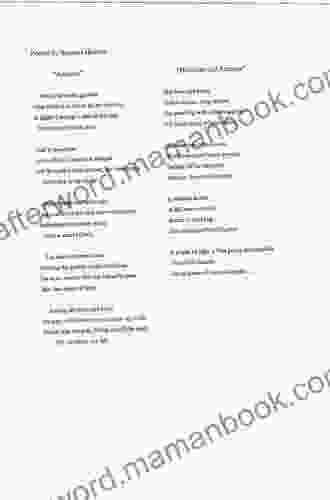
 Phil Foster
Phil FosterNorth Poems by Seamus Heaney: An Exploration of Place,...
Seamus Heaney's North...

 Jack Butler
Jack ButlerFleeting Encounters: The Enigmatic Transience of Maria...
In the annals of literary history, fleeting...

 Eliot Foster
Eliot FosterA Haiku Summer: Capturing the Essence of the Season in...
Summer is a time of warmth,...
4.7 out of 5
| Language | : | English |
| File size | : | 133 KB |
| Text-to-Speech | : | Enabled |
| Screen Reader | : | Supported |
| Enhanced typesetting | : | Enabled |
| Word Wise | : | Enabled |
| Print length | : | 36 pages |
| Lending | : | Enabled |


